Encountering an upset stomach in pets can be a common yet distressing experience for any pet owner. It’s crucial to address these digestive issues promptly to ensure the comfort and health of your furry friend. Understanding the signs and knowing how to respond can significantly alleviate your pet’s discomfort and prevent further health complications. This post aims to provide a thorough guide on relieving your pets upset stomach, covering everything from recognizing the symptoms to home remedies and preventive measures. By the end, you’ll be equipped with the knowledge to support your pet through these uncomfortable times and ensure they return to their happy, healthy selves as soon as possible.
Contents
Recognizing The Signs

When pets face gastrointestinal discomfort, they exhibit various symptoms that signal distress. Vomiting, diarrhea, lethargy, and a sudden loss of appetite are common indicators. Owners should closely monitor their pet’s behavior and physical condition, as these signs often suggest an upset stomach. It’s also important to note any changes in bowel movements or unusual noises from the abdomen, as these can provide additional clues to your pet’s discomfort.
Observing your pet’s general demeanor can offer insights into the severity of their condition. A pet that is quieter than usual or showing disinterest in activities they typically enjoy may be experiencing significant discomfort. By staying alert to these changes, pet owners can take timely action to address their pet’s upset stomach and mitigate any potential stress or pain.
Common Causes
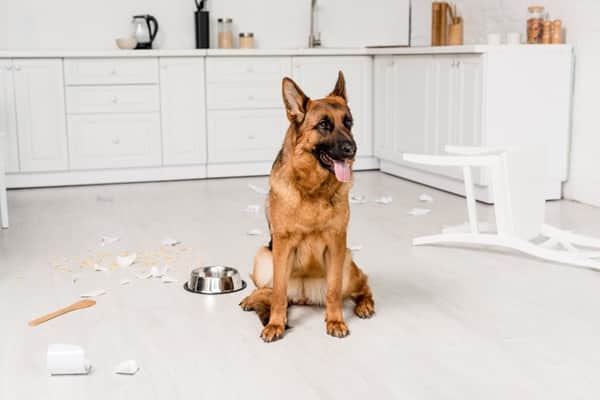
Dietary indiscretions stand as a leading cause of upset stomachs in pets. This includes eating spoiled food, garbage, or non-food items that irritate the digestive system. Such incidents can lead to inflammation of the stomach and intestines, manifesting as vomiting or diarrhea. Curious by nature, pets often ingest items they shouldn’t, which underscores the importance of monitoring their environment to prevent such occurrences.
Infections, parasites, food allergies, and chronic conditions like irritable bowel syndrome also contribute to gastrointestinal issues in pets. These conditions may require more than just dietary adjustments and can significantly impact your pet’s overall health if left untreated. Recognizing the potential complexity behind an upset stomach is crucial for pet owners, as it guides when to seek professional veterinary care versus when to manage symptoms at home.
Immediate Steps to Take
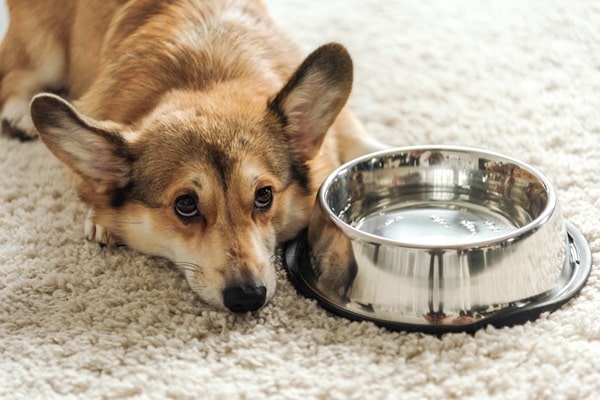
In the initial stages of recognizing an upset stomach, withholding food for 12 to 24 hours can be beneficial for your pet. This short fasting period allows the gastrointestinal tract to rest and recover from any irritation. During this time, providing small amounts of water frequently helps maintain hydration without overwhelming the stomach. Monitoring your pet’s response to these initial steps is essential for determining the next course of action.
After the fasting period, reintroducing a bland diet gradually is key to recovery. Small, frequent meals of easily digestible foods like boiled chicken and rice can soothe the stomach and provide necessary nutrients. This approach helps stabilize the digestive system and restore normal bowel movements. It’s essential to observe your pet’s reaction to the bland diet, as any recurrence of symptoms may warrant a visit to the vet.
Home Remedies to Soothe an Upset Stomach
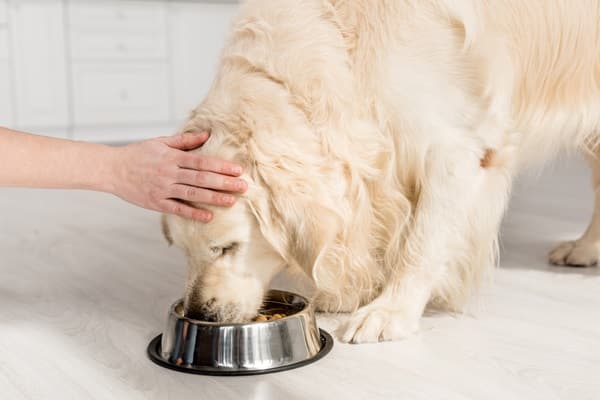
Boiled chicken and rice are often go-to foods for pets with upset stomachs due to their ease of digestion. These simple, bland ingredients can help settle the stomach while providing essential nutrients. It’s crucial to ensure that the chicken is cooked without any added spices or seasonings, as these can exacerbate gastrointestinal issues. Rice offers a source of soluble fiber, which helps to firm up loose stools and promote a healthy digestive system.
Incorporating probiotics into your pet’s diet is another effective remedy for soothing an upset stomach. Probiotics are beneficial bacteria that support gut health and aid in digestion. They can help restore the natural balance of the gut microbiome, which is often disrupted during episodes of gastrointestinal distress. Available in various forms, including supplements and certain types of yogurt, probiotics can be easily added to your pet’s diet to support recovery and maintain digestive health.
When to Use Over-the-Counter Medications
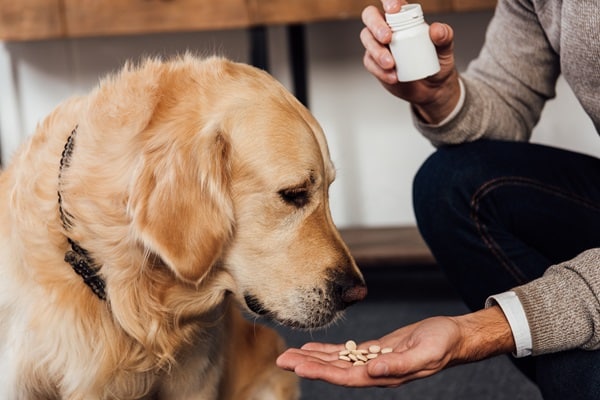
Administering human medications to pets without veterinary advice can be harmful, as many substances safe for humans are toxic to animals. If considering over-the-counter (OTC) remedies for a pet’s upset stomach, it’s imperative to consult with a veterinarian first. They can recommend pet-safe medications and proper dosages based on the pet’s specific condition, weight, and health history. This ensures that any treatment provided contributes to healing rather than causing additional harm.
Pet-safe OTC options, when used under veterinary guidance, can include medications designed to alleviate symptoms of mild gastrointestinal distress, such as certain antacids or anti-nausea drugs. However, pet owners should be mindful that these medications treat only the symptoms and not the underlying cause of the upset stomach. Continuous monitoring of the pet’s condition is crucial, and if symptoms persist or worsen, immediate veterinary attention is necessary to address potential complications.
The Role of Hydration in Recovery
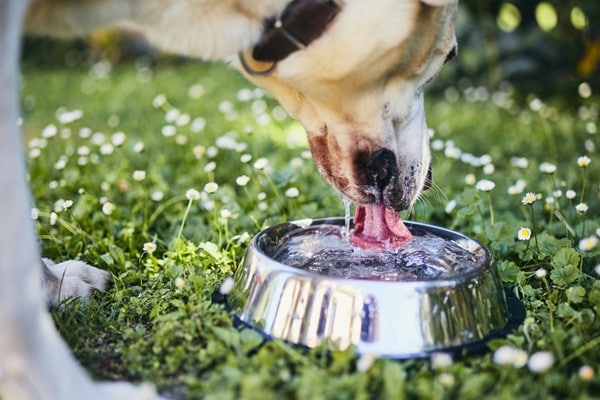
Dehydration is a significant concern for pets experiencing vomiting or diarrhea, as it can quickly lead to further health issues. Recognizing the signs of dehydration in pets is crucial; these can include dry gums, lethargy, and decreased skin elasticity. Owners should ensure their pets have access to fresh water at all times, encouraging them to drink by offering water frequently or adding moisture to their food. This helps replenish lost fluids and supports the recovery process.
Encouraging a pet to stay hydrated may require creativity, especially if they are reluctant to drink water. Offering ice cubes to lick or adding a little chicken broth (without onions, garlic, or high salt content) to water can make it more appealing. It’s essential to avoid forcing water into a pet’s mouth, as this can cause stress or lead to aspiration. Monitoring your pet’s intake and consulting with a vet if you suspect dehydration are key steps in managing their recovery from an upset stomach.
Preventing Future Episodes
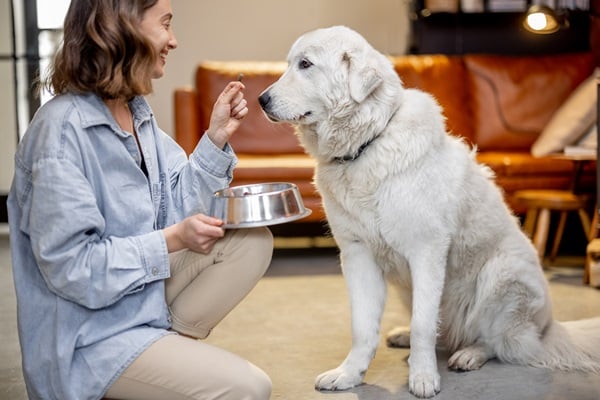
Maintaining a balanced diet is fundamental in preventing future episodes of upset stomachs in pets. This involves providing high-quality pet food, avoiding sudden changes in diet, and minimizing human food, which can disrupt a pet’s digestive system. Regular feeding schedules and portion control are also crucial to avoid overeating or the ingestion of spoiled food. Pet owners should be vigilant about securing trash and removing hazardous items from their pet’s reach to prevent dietary indiscretions.
Regular veterinary check-ups play a vital role in the early detection and prevention of conditions that could lead to gastrointestinal issues. During these visits, vets can offer advice on diet, parasite prevention, and overall health maintenance. Keeping up with vaccinations and routine deworming can protect pets from infections and parasites that cause upset stomachs. By taking these preventive measures, pet owners can significantly reduce the risk of future gastrointestinal distress in their pets.
Knowing When to See the Vet
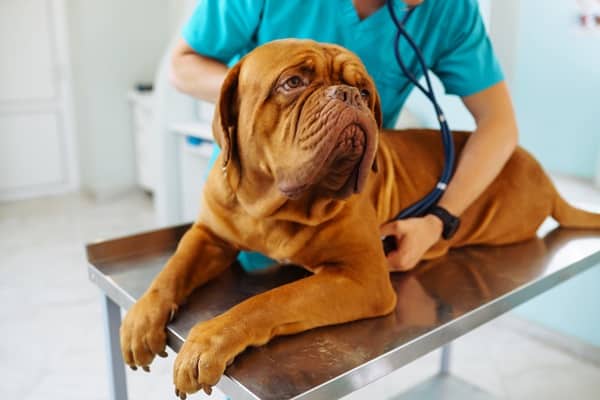
Certain symptoms associated with an upset stomach necessitate immediate veterinary care. These include persistent vomiting or diarrhea, blood in vomit or stool, extreme lethargy, or signs of pain such as whimpering or reluctance to move. Such symptoms could indicate a more severe underlying condition that requires professional diagnosis and treatment. Delaying veterinary care in these cases can lead to complications or more serious health issues.
Understanding when home remedies are insufficient and professional veterinary intervention is required is crucial for a pet’s health. Conditions like foreign body ingestion, severe infections, or chronic diseases need specialized treatment beyond what can be provided at home. A veterinarian can offer comprehensive care, including diagnostics, medication, and even surgery if necessary, to address the root cause of a pet’s upset stomach and ensure their well-being.
Turn Tummy Troubles Into Comfort
Relieving your pet’s upset stomach requires attentiveness, patience, and, sometimes, professional intervention. By understanding the signs, causes, and remedies, you can swiftly ease your pet’s discomfort and prevent future occurrences. However, recognizing when to seek veterinary help is crucial for your pet’s health and well-being. Always prioritize their safety by consulting with a professional when in doubt. Let’s ensure our pets enjoy a happy, healthy life by being proactive in their care.


